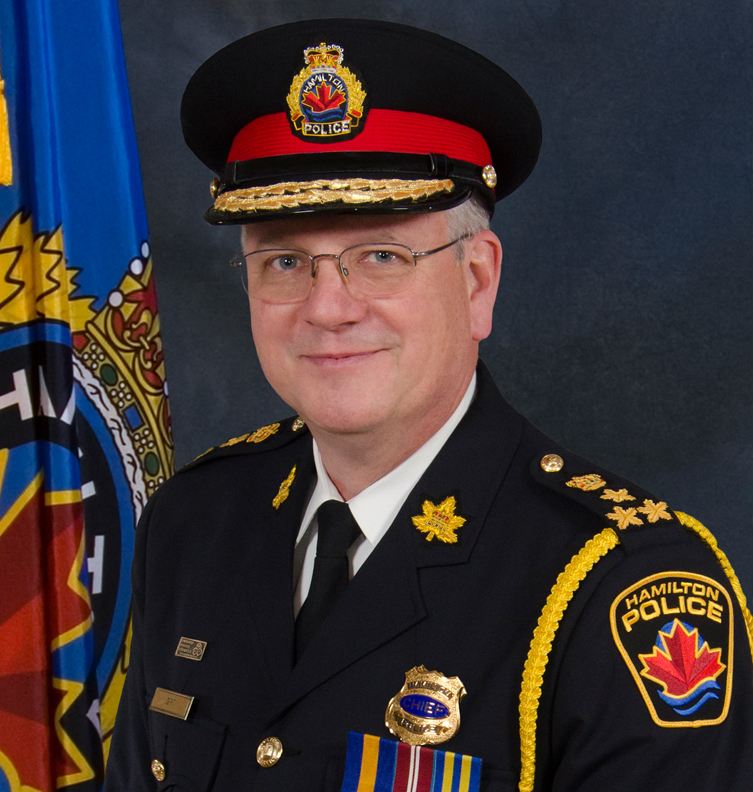Appointed as Chief in May 2016, Chief Eric Girt is responsible for one of the largest major municipal law enforcement agencies in the Province of Ontario. At a luncheon today hosted by the Stoney Creek Chamber of Commerce, he spoke about Crisis Response Units and programs within the city designed to address and serve the needs of some of the most vulnerable members of our community. Medicinal My Way was in attendance to challenge the exclusion of medical cannabis patients as part of those considered vulnerable, who have been placed directly at risk by the recent closures of local medical cannabis dispensaries.
The Social Navigator Program (SNP), Crisis Outreach and Support Team (COAST), and Mobile Crisis Rapid Response Team (MCRRT) exist to assess and follow up with the needs of at-risk individuals -with a mental health issue or concern – who have had repeat interactions with the Hamilton Police Service. Such individuals are facing homelessness, addictions, poverty, and mental health issues which contribute to those police interactions.
The goal of these programs is to “reduce the reliance on the judicial and healthcare systems by navigating our clients towards the appropriate agency while improving the health, safety, and quality of life for all citizens.”
During the Q&A Rob Frid, Shalynn Hamilton and Sam Tokarz asked the chief about the recent closures of medical cannabis dispensaries. The Crisis Response programs exist because there was a need in our community that the existing organizations alone could not meet. The same is true for medical dispensaries which supplement the shortcomings of the existing mail-order system for accessing medication. Arguably, those who face the most barriers to the mail order program are among the same group of vulnerable individuals in our community that the SNP, COAST and MCRRT support. Specifically, MMW reps pressed the chief to elaborate on any programs or coming initiatives that may be in the works while these closures continue to put hundreds in our community at risk.
Citing unregulated suppliers, non-government compliance, and possession limits – the chief’s responses confused the issues of the illicit and recreational markets with the medical, skirting the question entirely.
Medicinal My Way seeks not only to improve access to medical cannabis but also to provide education on the subject for patients, providers and the community so that clear understanding of the issues guides the next waves of legislation/enforcement. The dispensaries closed this week were locations of MMJ – who were operating not only under the Lofchik Order for patients with valid medical documentation, but were also tax-compliant and sourced their product exclusively from licenced growers. If the objective is to use law enforcement resources more efficiently and to “improve the health, safety, and quality of life for all citizens” there must be an urgent review and implementation of storefront solutions for patients.
Take Action today! Call your councillors, send a letter, share your story, make a donation to fund patient initiatives or join our ambassador program to support medical cannabis patients across Canada.

